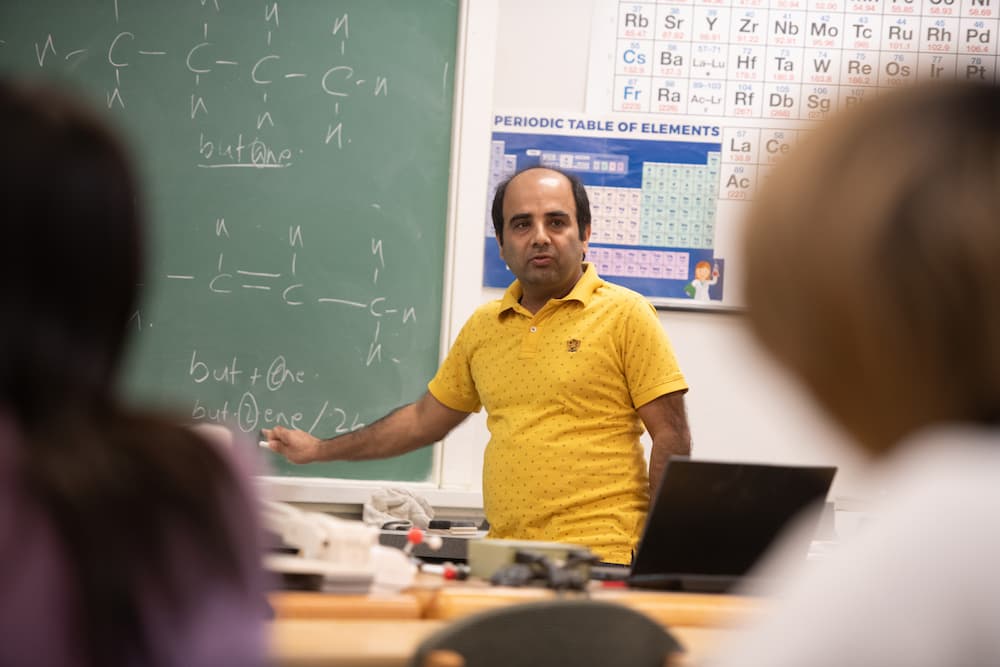

Ignite your curiosity and build a strong foundation in science with an associate degree in chemistry from Hesston College! Chemistry challenges both conceptual and quantitative thinking, making it an essential subject for students pursuing fields like pre-med, engineering, biology, nursing and physics. Our program offers a full year of Introductory Chemistry, General Chemistry and Organic Chemistry, providing the knowledge and hands-on experience needed to excel. With opportunities to be peer tutors and lab assistants, you'll gain valuable skills that prepare you for advanced studies. Start your journey at Hesston and discover the power of chemistry!

Career possibilities
With additional education, this program is designed to prepare you for a number of career paths in chemistry:
- Biology: Cell biology, Microbiology, Anatomy, Physiology, Genetics
- Biochemistry: Molecular biology, Immunology, Endocrinology, Genetic engineering
- Medicine/allied health sciences: Pharmacology, Nutrition, Clinical chemistry, Radiology
- Nuclear chemistry: Radiochemistry, Body imaging, Nuclear medicine
- Physics: Atomic and nuclear physics, Quantum mechanics, Spectroscopy, Materials science, Biomechanics
- Astronomy/geology/environmental science: Ecology, pollution studies
- Plant sciences: Botany, Agronomy



